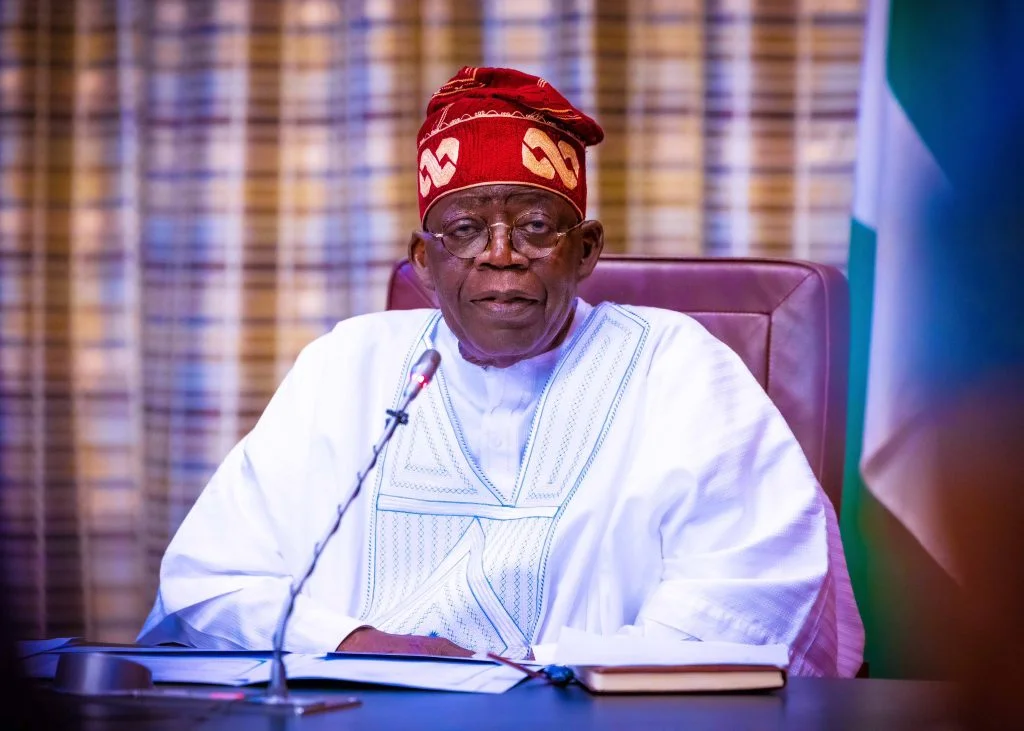Uncategorized
Rejoice, for the Ugandan ghosts will soon have nowhere to hide, Joachim Buwembo
Published
2 years agoon

The end of an epidemic or entrenched pests can come when we even give up hope of ever being free from it. That seems to be happening in Uganda, where ghosts had become endemic in public affairs. It has taken the emergence of a much bigger problem of global proportions to render our continued romance with ghosts untenable.
Remember how Ebola and Covid made handwashing with soap a life-and-death matter, whose unintended consequence was the elimination of many diseases of poor hygiene? Climate change is now flushing out our ghosts.
The reproduction and multiplication of ghosts for stealing public funds can be traced back to the civilian administrations that came after the 1979 fall of the military government. Before that, it was risky to mess with the ruling soldiers’ dwindling budget.
The earliest form Uganda’s ghosts took was schools. A policy to establish many secondary schools arose, and these were duly registered. The designated head teachers erected signposts on the land where the school was meant to be but, more importantly, got allocated an Indian TATA lorry each to ferry (non-existent) students for co-curricular trips. The head teachers then spent all their time in Kampala deploying their truck for commercial cargo transport. Their ghost institutions thus came to be known as TATA Secondary Schools.
Ghost teachers
In the succeeding years, ghost teachers emerged and their salaries made district education officers rich. The public service also started multiplying civil servants like rabbits. Things were getting out of hand when the president ordered the charging of the top military commander in the court martial for maintaining ghost soldiers on the army payroll 20 ago.
Since then there have been head counts in different services and ghosts in the public sector seem to have been weakened, but not before the country’s top learning institution, Makerere University, was also found to have had a few thousand ghost students. But the fleeing ghosts apparently found a home in the private sector and started taking non-human forms, like trees.
So, as Ugandans became aware of the climate change threat and that deforestation removes the carbon sinks the ghosts found tree cover a safe haven. As tree planting was encouraged, companies overplayed that tired phrase – corporate social responsibility – by planting trees. Sorry, they started planting ghost trees. But huge budgets (passed on to their consumers) to plant “one million trees” could have had less to do with re-afforestation.
Finally, last October, the onslaught on Uganda’s ghosts was launched where they were born – in the schools. The TATA schools are no more, having either become real schools or their land having been grabbed altogether. But the remaining schools are now the real theatre of war against climate change.
The war was launched last October by Education Minister and also First Lady Janet Museveni. Her campaign for greening the schools goes hand-in-hand with fighting the grabbing of school lands. The ministry is handling more than 100 cases of schools that have had their land grabbed.
The irony is that many grabbed school lands in and near towns were turned into car washing bays and petrol stations – the very top agents of air pollution that fuels climate change.
Deforestation rate
Currently, the deforestation rate is at 122,000 hectares per year, in this small country 240,000 square kilometres, a fifth of which is open water. Uganda is projected to become water stressed in less than 20 years.
The havoc climate change unleashes on Uganda includes landslides, hastened by cutting of trees in hilly areas. We started this month by losing lives to landslides in the southwest of the country, already an annual tragedy in the hilly eastern areas.
Launching the fight against climate change in schools kills several birds with one stone. Besides the beauty of inculcating the culture of tree planting and maintenance in the children, who are our future, the school communities are encouraged to protect the restored tree cover. Schools have been a cause of deforestation, as they buy tonnes upon tonnes of firewood for cooking.
If the school greening is sustained, Ugandan ghosts will at least have no hiding place in non-human hosts. Good things are happening as our environment gets better.
Buwembo is a Kampala-based journalist. E-mail:buwembo@gmail.com
You may like
-


Let’s merge EAC and Igad, By Nuur Mohamud Sheekh
-


African Union must ensure Sudan civilians are protected, By Joyce Banda
-


Economic policies must be local, By Lekan Sote
-


Dangote Refinery: A timely win for industrialisation, By Abiodun Alade
-


Mpox crisis: We need an equity-driven pandemic treaty, By Magda Robalo
-


Olympics had free lessons for African leaders, By Tee Nugugi
Uncategorized
Absa PMI report shows South African factory sector contracts in November
Published
2 months agoon
December 2, 2024
According to a local purchasing managers’ index (PMI) survey, industrial activity in South Africa decreased in November as a result of unstable market circumstances.
The South African bank Absa’s seasonally-adjusted PMI dropped from 52.6 points in October to 48.1 points in November, below the 50-point threshold that distinguishes growth from contraction.
Absa stated that last month’s declines in the business activity and new sales orders sub-indices undid the advances it had made in September and October.
“While local inflation and interest rates have come down relative to earlier in the year, demand remains unpredictable,” Absa said in a statement.
The bank claims that although international demand helped South Africa’s manufacturing sector in November, dangers will still exist in the form of internal uncertainty and a declining rand.
“The global political outlook has become more complicated with concerns about global growth and trade dynamics following the election of Donald Trump as US president earlier in November,” it added.
Uncategorized
Nigeria: President Tinubu urged to publish names of contractors who made away with 31 MDAs’ N167bn
Published
2 months agoon
December 1, 2024
Nigerian advocacy group, the Socio-Economic Rights and Accountability Project (SERAP), has challenged President Bola Tinubu to order the Minister of Finance and Coordinating Minister of the Economy, Olawale Edun, and the Accountant-General of the Federation, Oluwatoyin Sakirat Madein, to publish names of the companies and contractors who collected over N167 billion from 31 ministries, departments and agencies (MDAs) but failed to execute any projects.
SERAP, in a letter addressed to Tinubu on Sunday, also urged the President to mandate the relevant authorities to provide the details of the projects for which the contractors collected N167 billion, and the proposed locations, as well as the number of contractors involved and the amount collected by each contractor.
The group said damning revelations documented a released 2021 audited report by the Office of the Auditor-General of the Federation point to the fact that there was massive fraud in the procurement and non-prosecution of the contracts.
“The details to be published should include the names of shareholders and others that might have any ownership interests in the companies that collected over N167 billion from 31 MDAs but disappeared with the money without executing any projects,” the letter signed by SERAP deputy director Kolawole Oluwadare, said.
“SERAP urges the President to direct the Attorney General of the Federation and Minister of Justice Mr Lateef Fagbemi, SAN, and appropriate anti-corruption agencies to promptly bring to justice, as appropriate, any companies and contractors who collected the over N167 billion of public funds but failed to execute any projects.
“SERAP also urged the President to name and shame the companies and contractors and to ensure the recovery of the over N167 billion reportedly collected by them for projects not executed. The recovered money should be fully remitted to the treasury.
“Publishing the names will make it hard for companies and contractors to get away with complicity in grand corruption.
“Holding the companies and contractors who collected over N167 billion from 31 MDAs but disappeared with the money would also prevent and combat waste, fraud, and abuse in the spending of public funds.
“The Nigerian Bulk Electyricity Trading Plc., (NBET) alone reportedly paid N100 billion to companies and contractors for projects not executed.
“It is important to show that your government would not shield or allow ingrained wrongdoing by companies and contractors to go unpunished.
“Unless the names of the companies and contractors are disclosed and widely published, alleged corrupt companies and contractors executing public projects will not be deterred and the victims of corruption that they allegedly committed will continue to be denied access to justice and effective remedies.
“The allegations of corruption involving many companies and contractors who collected over N167 billion from 31 MDAs have continued to impair, obstruct and undermine access of poor Nigerians to public goods and services.
“According to the 2021 annual audited report by the Auditor-General of the Federation published on Wednesday 13 November 2024, thirty one (31) ministries, departments and agencies (MDAs) paid over N167 billion [N167,592,177,559.40] to companies and contractors for contracts and projects not executed.
“Companies and contractors reportedly collected N100 billion from the Nigerian Bulk Electricity Trading Plc., (NBET) for contracts and projects not executed.
“The thirty other MDAs including Nigerian Correctional Service; National Pension Commission, Abuja; Federal College of Land Resources Technology, Owerri; and Hydrocarbon Pollution Remediation Project (HYPREP) Office.
“Others include: Petroleum Technology Development Fund (PTDF); Federal Ministry of Youth and Sports Development; Federal Medical Centre, Bida, Niger state; National Centre for Women Development; Institute for Peace and Conflict Resolution; National Business and Technical Examinations Board (NABTEB); Federal University of Gasua; and Ministry of Niger Delta Affairs.
“The companies and contractors that allegedly disappeared with public funds meant for public projects may also be liable for aiding and abetting the commission of acts of grand corruption.”
“We would therefore be grateful if the recommended measures are taken within seven days of the receipt and/or publication of this letter. If we have not heard from you by then, SERAP shall take all appropriate legal actions to compel your government to comply with our request in the public interest.
“Failure to take punitive and dissuasive measures would allow corrupt companies and contractors to continue to undermine the rule of law and socio-economic development of the country.
“Senior public officials who apparently served as intermediaries for these companies and contractors continue to escape justice. The allegations of corruption involving the use of the public funds may be responsible for the developmental challenges confronting the country and lack of effective and efficient public goods and services.
“The allegations that the companies and contractors collected over N167 billion of public funds from 31 MDAs but failed to execute any projects clearly amount to a fundamental breach of national anticorruption laws and the country’s international anticorruption obligations.”
“The consequences of corruption are felt by citizens on a daily basis. Corruption exposes them to additional costs to pay for health, education and administrative services.
“Another consequence of corruption is the growing inequality in the country, where the privileged few have access to all public resources, while the vast majority of citizens are deprived of access to public services.
“Corruption undermines economic development of the country, trapping the majority of Nigerians in poverty and depriving them of opportunities.
“The Minister of Finance and Coordinating Minister of the Economy and the Accountant-General of the Federation have sacred duties to ensure that natural resources and wealth are transparently and accountably used solely for the purposes for which they are budgeted, and for the effective development of public goods and services.”
“Your government has a responsibility to ensure transparency and accountability in how any public funds are spent by MDAs, to reduce vulnerability to corruption and mismanagement.”
“The n blame.
“The UN Convention against Corruption to which Nigeria is a state party contains requirements of integrity and honesty in economic, financial or commercial activities-in the public and private sectors.”
“It also imposes obligations on the government to ensure that sanctions imposed for corruption on natural and legal persons are effective, proportionate and dissuasive.”
“The Nigerian Constitution, Freedom of Information Act, and the country’s anti-corruption and human rights obligations rest on the principle that citizens should have access to information regarding their government’s activities.”
EDITOR’S PICK


Nigeria: Marketers predict further price cut as another refinery begins operations
Oil marketers and the Nigerian Midstream and Downstream Petroleum Regulatory Authority expect refined petroleum product prices to reduce as another...


Kenya: Consumer inflation rises to 3.0% from 2.8%
Kenya’s statistics agency said on Tuesday that Kenya’s consumer price inflation increased slightly to 3.0% year-over-year in December from 2.8%...


South Africa’s Transnet’s half-year deficit hits $117m
Transnet, a state-owned logistics company in South Africa, announced on Tuesday that it had lost 2.2 billion rand ($117.48 million)...


Nigeria, China extend $2bn currency swap deal
A 15 billion yuan ($2 billion) currency-swap arrangement between China and Nigeria has been extended to boost investment and commerce...


Egypt’s central bank maintains overnight rates
As anticipated, Egypt’s central bank has maintained its overnight interest rates, stating that although inflation was predicted to drop significantly...


Illicit flows cost Nigeria, others $1.6bn daily— AfDB
According to the African Development Bank (AfDB), illicit money flows and profit shifting by multinational corporations doing business in Africa...


‘Don’t start what you can’t finish’, ex-Nigerian official replies President Tchiani
Former Nigerian Aviation Minister, Femi Fani-Kayode, has told President Abdourahamane Tchiani of Niger Republic to refrain from making infantile and...


Again, Starlink raises prices of its services in Nigeria
Elon Musk’s satellite internet service provider, Starlink, has again jacked up the prices of its services in Nigeria after an...


Former President of Moroccan club Raja sentenced to 3 years in prison
The former President of Moroccan top club, Raja Casablanca, Mohamed Aouzal, has been sentenced to three and a half years...


Zambia announces second case of Mpox as country battles cholera outbreak
The Zambian Ministry of Health has reported a second case of Monkeypox, popularly known as Mpox, in Kitwe region of...


